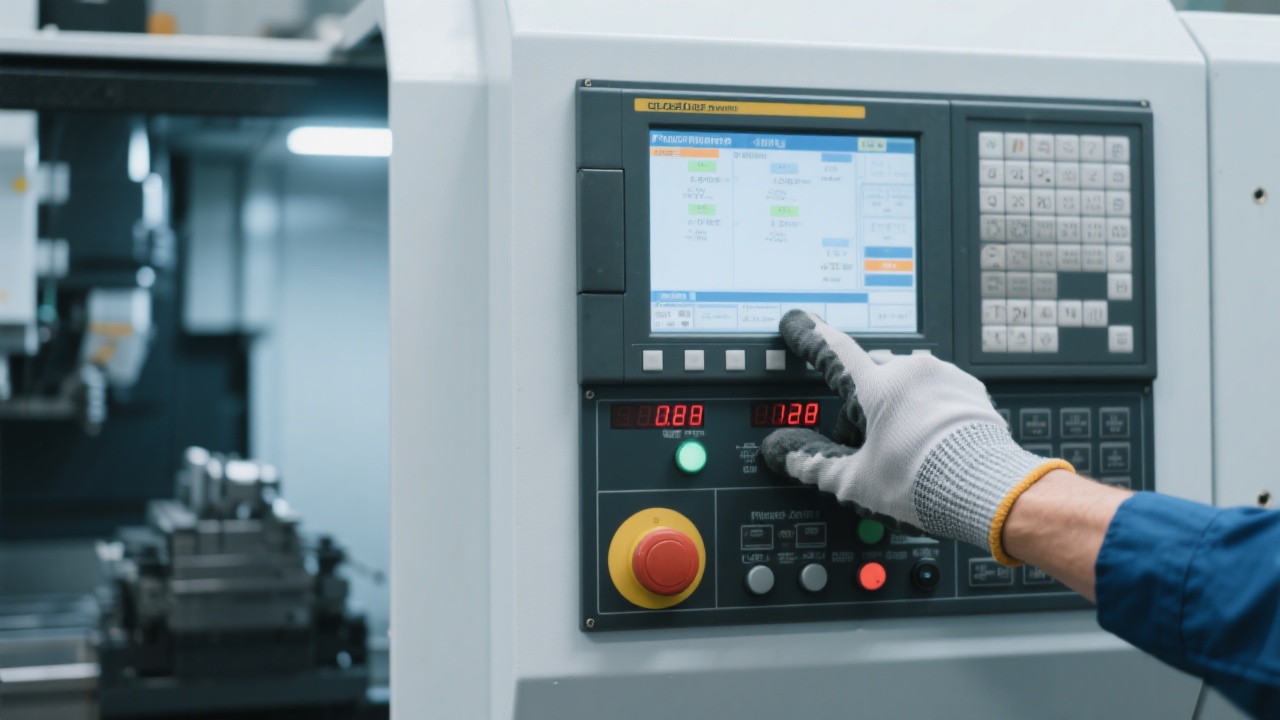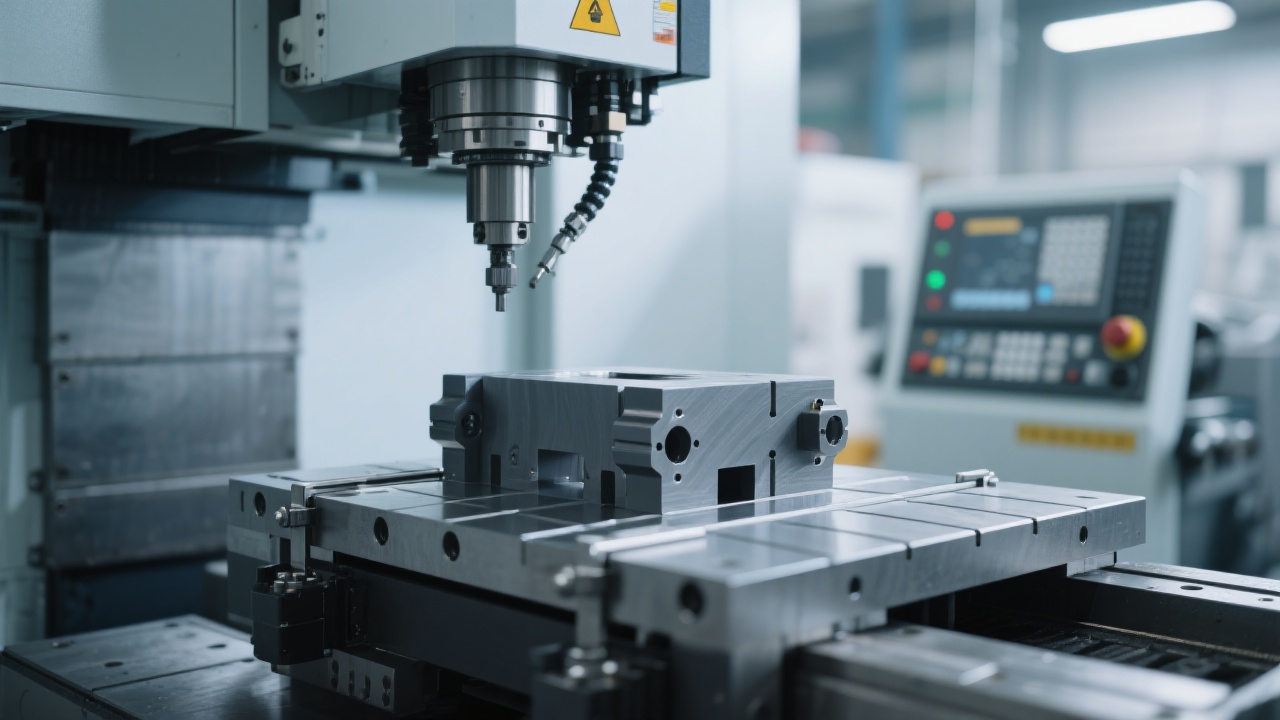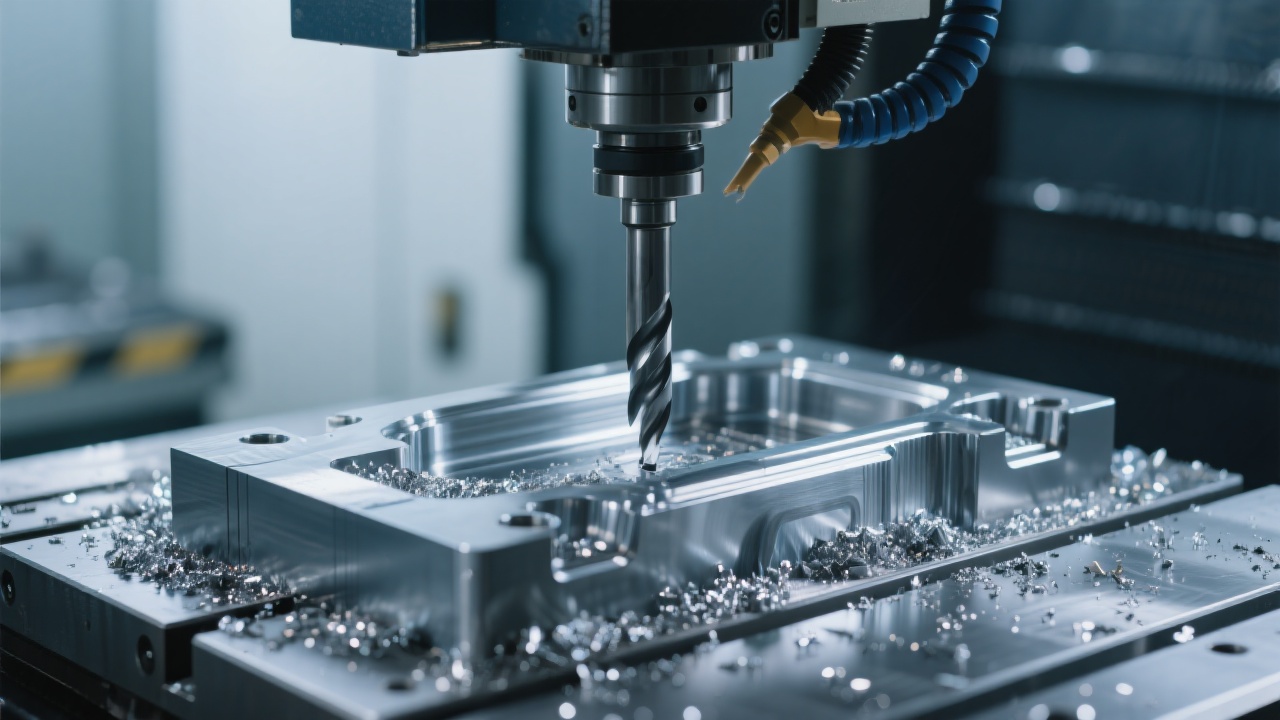Efficient Graphite Electrode Machining Solutions: Advantages and Features of the FH855L RTCP Five-Axis Machining Center
12 11,2025
Customer Cases
This article provides an in-depth analysis of Ningbo Kaibo CNC Machinery Co., Ltd.'s FH855L RTCP five-axis vertical machining center, highlighting its technological advantages in high-precision graphite electrode and complex multi-surface part machining. By explaining the RTCP (Rotary Tool Center Point) automatic compensation function, it illustrates how five-axis machining significantly improves processing efficiency, accuracy, and surface quality compared to traditional three-axis equipment. Real customer cases demonstrate optimized graphite machining parameters and multi-surface coordinated programming techniques, offering both beginners and experienced engineers comprehensive insights to enhance process quality and production efficiency.

Unlocking Precision: The FH855L RTCP Five-Axis Machining Center for Graphite Electrodes
In the high-stakes industry of graphite electrode manufacturing, precision, efficiency, and surface quality have become non-negotiable benchmarks. The Ningbo Kaibo CNC Machinery Co., Ltd. introduces the FH855L RTCP Five-Axis Vertical Machining Center, a game-changing machine engineered to elevate graphite electrode fabrication and complex multi-face components to unprecedented levels.
Why Five-Axis Machining Matters in Graphite Electrode Processing
Traditional three-axis machining often struggles with the complex geometries and stringent tolerances required for advanced graphite electrodes. The transition to five-axis technology dramatically enhances:
- Processing Efficiency: Multi-face capabilities reduce setup times by up to 40%, minimizing manual repositioning.
- Dimensional Accuracy: Achieve geometric tolerances within ±0.005 mm, critical in electric arc furnace operations.
- Surface Finish Quality: Superior tool orientation allows smoother cuts, reducing surface roughness (Ra) to below 0.8 μm.
Harnessing RTCP Technology: Real-Time Tool Center Point Compensation
The core innovation of the FH855L lies in its RTCP (Rotating Tool Center Point) automatic compensation system. This function dynamically adjusts the tool's center point as the spindle and rotary tables move, ensuring:
| Feature |
Benefit |
| Real-time tool position tracking |
Minimizes positional deviations, ensuring ultra-precise machining |
| Automated error compensation |
Reduces human adjustments and prevents cumulative errors |
| Enhanced tool path smoothing |
Improves surface finish and tool life |
This technology empowers both novice operators and expert engineers to deliver consistently high-quality outputs while alleviating programming complexities.
Understanding Graphite Material Challenges and Cutting Parameter Optimization
Graphite's unique physical properties—abrasiveness, brittleness, and thermal conductivity—pose significant machining challenges. Recognizing these influences, the FH855L optimizes process parameters such as:
- Spindle speeds ranging from 1500 to 8000 RPM
- Feed rates carefully calibrated between 1000 and 3000 mm/min
- Depth of cuts optimized at 0.1 to 0.5 mm per pass to avoid chipping
These parameters, combined with high-speed five-axis tool paths, have reduced rework rates by up to 25% in real-world scenarios.

Real-World Case Study: Elevating Production through Multi-Face Linked Machining
A global graphite electrode manufacturer implemented the FH855L to tackle complex multi-face geometries. By employing advanced multi-face linkage programming, enabled by the RTCP function:
- Setup times were cut by 35%
- Cycle times shortened by approximately 20%
- Overall part accuracy improvements led to higher yields
Engineers also leveraged the machine’s CAD/CAM integrated software to precisely plan five-axis trajectories, circumventing common cutting errors and extending tool life by 15%.

Pro Tips & Pitfalls to Avoid
Mastery over five-axis graphite machining extends beyond hardware. Here are a few expert recommendations:
- Program with Precision: Inaccurate multi-face alignment can lead to cumulative tolerance stack-up.
- Monitor Tool Wear: Abrasive graphite materials accelerate tool degradation; proactive replacement is key.
- Utilize Real-Time Feedback: Leverage RTCP data to continuously refine cutting parameters on the fly.
Avoid common mistakes like excessive cutting depths or ignoring thermal expansion, which can cause micro-cracks or surface defects.






